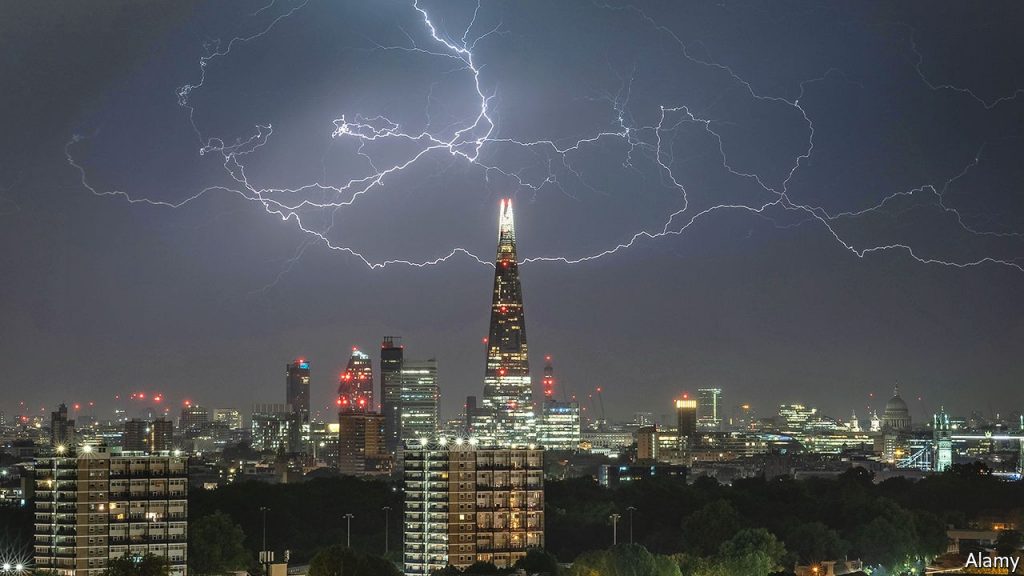Pensioners, foreigners and even the queen will be hit by the upcoming slump in the commercial property market.
The queen has a pretty impressive property portfolio, with 17 provincial shopping and leisure centres, plus prestigious London addresses such as Regent Street and St. James’s all valued at a total of £13.4bn. So, a dip in market value may not seem such a big deal for her, but the Crown Estates, who manage the monarch’s portfolio announced that they expect “profit and property valuations to be significantly down” over the next year. They cut their value by 17%, reducing Her Majesty’s net worth by £552.5m.
Online retailers are affecting the property market
COVID-19 has forced many businesses to develop an online presence and it has accelerated the growth of the e-commerce sector. Hospitality has been severely negatively impacted, online retail is overtaking offline retail in some areas and offices are deserted. All of this is bad news for commercial-property owners.
The Investment Property Forum (IPF) did a consensus forecast of a recent survey of 24 large property investors and consultants which predicted that capital values would drop by 12% in 2020. However, there’s a lot of variety in the stats between different types of commercial property.
For example, industrial units are predicted to still show growth and perform the best of all the commercial property types. However, the survey shows that shopping centre valuations will fall 28% and other retail premises will drop 20%. With many chain restaurants forced to close down due to the impact of the pandemic this year, and large department stores such as Harveys Furniture and Debenhams forced to go into administration, shopping centres are running out of tenants. Even once lockdown measures were lifted, people are not so keen to hang around indoor shopping centres anymore. Property investors expect nearly 50% of Britain’s shopping centres to close.
Do people still need offices?
Andrew Burrell, the head of property at Capital Economics, says that the greatest uncertainty is over offices, as their future depends on what happens with the pandemic. In the IPF report, the capital values in 2020 for City offices range from -20% to a modest positive growth. So, the future is very unclear indeed.
Offices outside of London seem to have less of a swing, perhaps due to the lower costs involved and people feel safer to drive to work rather than commute on public transport. However, with announcements from huge companies such as Google and Sony Music saying that their staff don’t need to come back to the office until 2021, it’s put pressure on many other companies to do the same. Social media giants such as Facebook and Twitter have told staff that they never ever need to come back to the office! It then puts a question mark over the extremely large commercial properties that these companies currently occupy.
No one really knows what the value of commercial property in Britain is, but some trade bodies suggest it’s £1.6trn. If that’s the case, then these supposedly small percentage declines would cause a massive dent in value. The IPF puts the invested stock at a value of £512bn in 2018, which would mean, based on estimates on what’s happening this year, a decline of over £50bn in value.
The potential effect of the decline of commercial property
The mid 1970s, the early 1990s and 2007 all saw commercial property busts and they triggered losses at banks, which led to less credit becoming available to businesses and caused negative consequences across the rest of the economy. However, this time round, financial regulators are more relaxed. Banks are more prepared, less exposed and better capitalised compared to 2007.
For example, whilst pension funds’ holdings of commercial property over the last decade have increased due to low returns from bonds, they typically only make up around 5% of their total assets. So, even dramatic drops in capital values would be offset by higher returns in global equities, for example.
Commercial property ownership is also a lot more diverse, with foreigners owning 30% of invested stock, compared to 17% in 2007. E.g. The Qatari sovereign-wealth fund is now the biggest owner (by square footage) of commercial property in London, boasting landmarks such as the Shard, Chelsea Barracks and Canary Wharf. And the Kuwaitis own City Hall, which they purchased in 2013.
However, in Britain, more than 65% of SMEs use their commercial property as collateral against their business, and corporate investment often correlates with commercial property prices. Studies show that a 10% drop in property valuations would cut firms’ investment by 1%. This decline would also affect business rates (which is worth around 1.4% of GDP) and therefore public sector revenues. But, thanks to the financial crisis in 2007-9, it looks as though commercial property may suffer and some landlords, pension funds and insurance companies will probably take a hit, but it won’t be as bad as back then.
